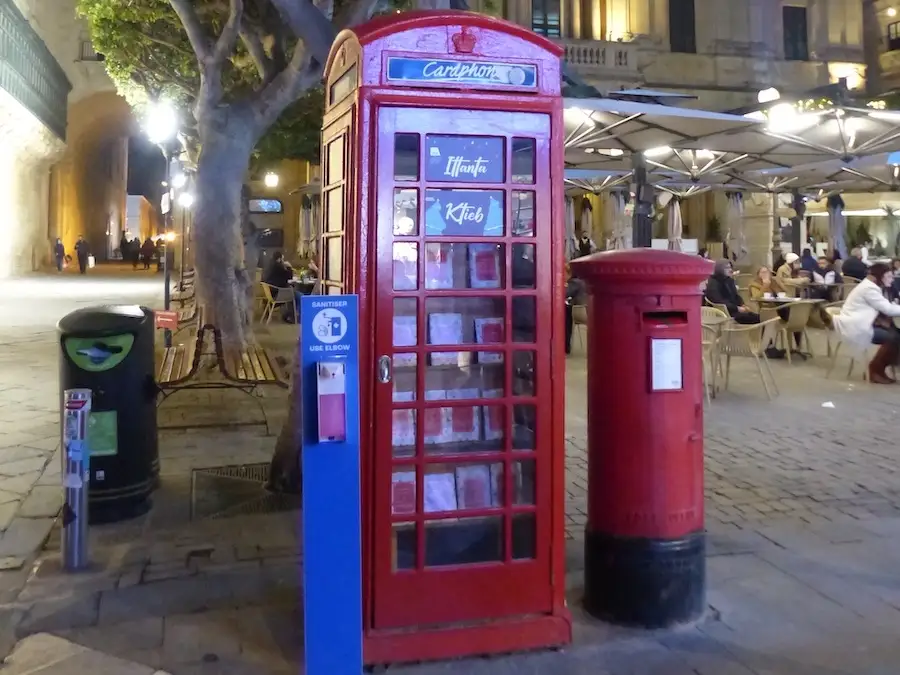What language is spoken in Malta?
If there is one question all travelers ask themselves before coming to Malta, it is which official language is spoken on the archipelago. Here is an overview of the different languages spoken in Malta: English, Maltese, Italian, French… Which are the most popular languages?

English and Maltese, the two languages used in Malta
English, the most commonly used language in Malta
Malta is a former British colony. The archipelago was part of the British Empire from 1800 to 1964. As a result, the English language remained as one of the island’s two official languages, along with Maltese.
In theory, English is the second official language of Malta after Maltese. In practice, however, English is the first language spoken on the island. This helps explain the popularity of language study trips to Malta for learning English.
English is used in business, education, and tourism in Malta. With over 3.5 million travelers each year versus only 563,433 inhabitants, the use of English has become widespread as the everyday language, overshadowing Maltese. Malta’s first newspaper, the Times of Malta, is itself published in English.
Malta is also still part of the 53 Commonwealth member states. Contrary to a common misconception, however, it is no longer one of the 16 Commonwealth realms, such as Canada, Australia, or New Zealand, which still recognize King Charles III as Head of State.
Maltese, the official language of Malta
The national and official language of the Republic of Malta is Maltese, constitutionally speaking. Maltese is spoken by around 400,000 people, representing 70 to 75% of Malta’s inhabitants, a percentage that has significantly decreased following the strong demographic changes in Malta in recent years.
As a European country, Maltese is one of the 24 official languages of the European Union.
Malta was colonized many times, and Maltese developed through a variety of cultural influences. Its root comes from Sicilian Arabic, with additional influences from Latin, Italian, French, English, and Tunisian Arabic. Maltese is therefore considered a Semitic (or Afro-Asiatic) language, rich and varied, using a Latin alphabet.
What about other languages spoken in Malta?
While English and Maltese are the two most widely used languages in Malta, it’s important to remember that the archipelago is very cosmopolitan—nearly one in four residents of Malta is not Maltese—and heavily visited by tourists. Indian, Italian, French, and Latin American communities are very prominent in Malta. As a result, it is quite common to hear Hindi, Italian, French, or Spanish in everyday life. Nevertheless, English remains the common language.
Why do they speak English in Malta?
The English language, a legacy of the British Empire’s influence
In 1798, during his Egyptian campaign, Napoleon Bonaparte decided to seize the island of Malta. Malta has always been of strategic importance during major invasions in the Mediterranean region. The Order of Malta, then still very powerful on the island, chose to lay down its arms in the face of Napoleon’s formidable fleet, relinquishing the island to the French without a fight.
After two years of extortion, looting, and coercive laws, the Napoleonic troops became so unpopular that the people of Malta called upon France’s greatest rival and most formidable enemy: the British Empire.
The English freed Malta from French rule following a two-year embargo but then decided to keep the archipelago for themselves. In 1816, they officially annexed the island as a colony of the British Empire.
It was not until September 21, 1964 that the island was decolonized and gained independence. On December 13, 1974, the archipelago officially became the Republic of Malta. Although Malta is still a member of the Commonwealth, it now has a democratically elected president and has retained the English language as part of its heritage.
The most common words in Malta
Commonly used vocabulary in English and Maltese
| English | Maltese |
|---|---|
| Hello/Hi | Bonġu |
| Yes/No | Iva [Iva] / Le [Lè] |
| Today | Illum |
| Tomorrow | Għada |
| Please | Jekk joghgbok [Yèk yodjbok] |
| Thanks | Grazzi [Gratsi] |
| How much is it? | Kemm? |
| How are you? | Kif inti? [Kif i’nti] |
| Bye/Goodbye | Saħħa [SaHHa] |
What does “Mela” mean?
Mela or Mela Mela is probably the most emblematic phrase in Malta. The Maltese use it all the time in both Maltese and English.
Mela isn’t a word or an expression with a precise meaning. It can mean “okay,” “well,” “all right,” “that’s enough,” “that works,” and so on. The speaker’s intonation and the context will determine the meaning to be conveyed.